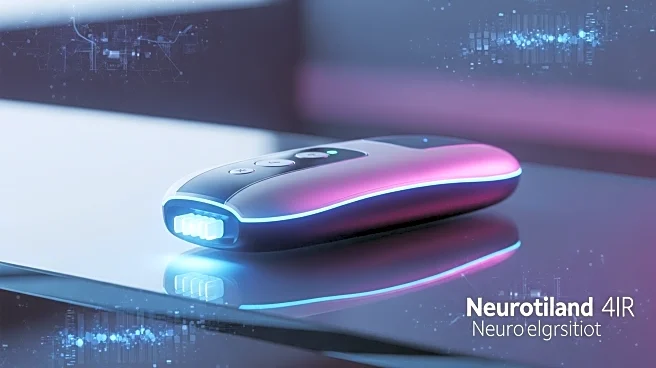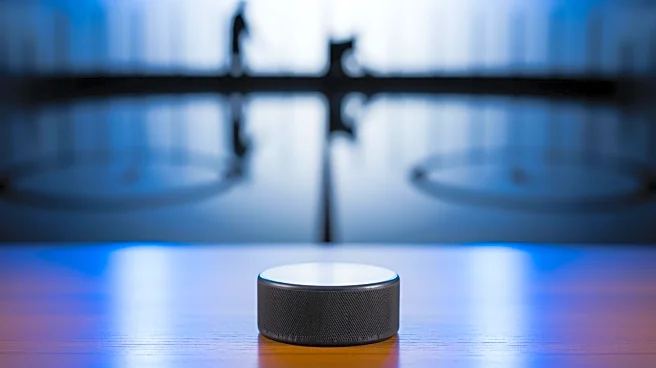What's Happening?
SetPoint Medical, a Santa Clarita-based company, has received FDA approval for its neurostimulation implant device designed to treat rheumatoid arthritis, marking a significant advancement in the treatment of autoimmune diseases. Traditionally, these conditions have been managed with pharmaceuticals. The device targets the vagus nerve, which plays a crucial role in regulating inflammatory cytokines. The approval is a result of extensive research and development, including clinical trials. Following this milestone, SetPoint Medical announced a $140 million late-stage financing round from a consortium of 20 investment companies. The funds will be used to establish a marketing and distribution network for the device, aiming to replace traditional drug therapies with this innovative solution.
Why It's Important?
The approval and funding of SetPoint Medical's device represent a potential shift in the treatment landscape for autoimmune diseases, particularly rheumatoid arthritis. This development could reduce reliance on costly pharmaceuticals, which often come with significant side effects and financial burdens. The device offers a more cost-effective solution, potentially saving health insurers substantial amounts annually. As one of the first movers in bioelectric medicine for autoimmune therapy, SetPoint Medical has a limited window to establish market dominance before competitors catch up. The success of this device could pave the way for similar technologies to address other autoimmune conditions, potentially transforming patient care and reducing healthcare costs.
What's Next?
SetPoint Medical plans to begin surgical implantation of the device by the end of the year, with increased activity expected next year. The company faces challenges in convincing clinicians to adopt this new technology and insurers to cover the device. Additionally, SetPoint Medical is exploring further applications of its neurostimulation technology, including potential treatments for multiple sclerosis and Crohn's disease. Continued research and development are necessary to expand the device's use to other autoimmune conditions, indicating a long journey ahead for the company in broadening its impact.
Beyond the Headlines
The introduction of bioelectric medicine raises ethical and cultural questions about the shift from traditional pharmaceuticals to technology-based treatments. This transition may challenge existing medical practices and require adjustments in patient and clinician perceptions. The long-term implications could include changes in healthcare policy and insurance coverage, as well as the potential for increased accessibility to effective treatments for autoimmune diseases.









